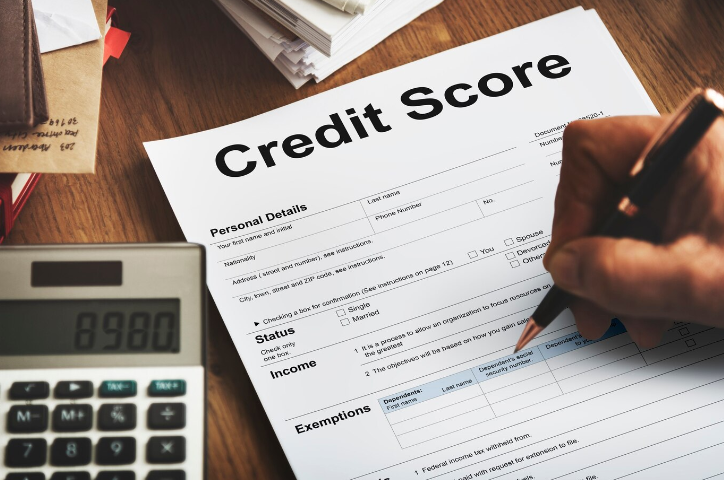Credit cards offer convenience and financial flexibility, but they also come with the risk of accumulating debt. When used irresponsibly, credit card debt can have significant negative effects on your financial health. Understanding the impact of this debt is crucial for maintaining financial stability and avoiding long-term financial challenges.
1. High-Interest Rates and Compounding Debt
One of the most immediate effects of credit card debt is the high interest rates. Credit card interest rates are typically much higher than other types of debt, like mortgages or personal loans. If you carry a balance from month to month, the interest compounds, meaning you’ll end up paying interest on your interest. Over time, this can cause your debt to snowball, making it increasingly difficult to pay off.
Example:
A $5,000 credit card balance with a 20% annual interest rate can result in over $1,000 in interest charges if only minimum payments are made, significantly increasing the time it takes to pay off the debt.
2. Damage to Credit Score
Carrying high balances or missing payments can have a direct negative impact on your credit score. Two major factors that influence your score are:
- Payment History: Late or missed payments can significantly lower your score, making it harder to qualify for loans or new credit in the future.
- Credit Utilization: A high credit utilization rate (the percentage of your available credit you’re using) negatively affects your score. Ideally, your utilization rate should be below 30%.
A low credit score can make it more expensive to borrow money in the future, as lenders may see you as a higher-risk borrower and charge higher interest rates on loans.
3. Increased Financial Stress
Credit card debt can create a heavy emotional burden. The pressure of having to make high monthly payments or dealing with debt collectors can cause significant financial stress. This stress can affect other aspects of your life, including your relationships and overall well-being.
Signs of Financial Stress:
- Difficulty sleeping due to money worries
- Constant anxiety about paying bills or making ends meet
- Avoiding important financial decisions or ignoring debt statements
4. Limited Financial Flexibility
Credit card debt reduces your financial flexibility by tying up a portion of your income in monthly payments. Instead of being able to save, invest, or spend on necessities, you’re forced to allocate money to debt repayment. This limits your ability to build emergency savings or make future financial plans, such as buying a home or investing in education.
5. Long-Term Financial Impact
The long-term effects of credit card debt can be severe. If left unchecked, it can delay major life milestones such as buying a house, starting a business, or even retiring. The longer it takes to pay off your debt, the more interest you accumulate, and the harder it becomes to achieve financial independence.
6. Difficulty Saving for Emergencies or Retirement
When a large portion of your income goes toward paying off credit card debt, it becomes harder to set aside money for emergency savings or retirement. Without an emergency fund, you may be forced to rely on credit cards for unexpected expenses, further deepening the debt cycle. Similarly, missing out on retirement savings opportunities means losing the compounding benefits of long-term investments.
7. Negative Impact on Mental and Physical Health
The stress of managing credit card debt can lead to physical and mental health issues. Anxiety, depression, and even physical symptoms such as headaches and high blood pressure are often linked to financial struggles. Prolonged financial stress can affect your ability to focus at work, engage in social activities, or take care of your health.
8. Debt Traps and Minimum Payments
Many credit card companies allow cardholders to make minimum payments, which may seem like a manageable option in the short term. However, only making minimum payments can lead to a debt trap, as most of the payment goes toward interest rather than the principal balance. This means you could spend years paying off a relatively small amount of debt, all while accumulating more interest.
Example:
Paying the minimum on a $10,000 balance at 18% interest can result in paying thousands more in interest over time, and it could take over a decade to pay off the balance.
9. Difficulty Accessing New Credit
When you carry significant credit card debt, lenders may be reluctant to approve you for new loans, such as mortgages or auto loans. Even if you’re approved, the terms will likely be less favorable, with higher interest rates or lower credit limits. This can limit your financial opportunities and make achieving goals like homeownership more challenging.
10. Decline in Overall Financial Well-Being
In the long term, credit card debt can erode your overall financial well-being. The inability to save, invest, or achieve financial goals creates a cycle of financial instability. Furthermore, the compounding effects of debt can lead to more borrowing, worsening your situation and making it difficult to escape the debt spiral.
How to Manage and Reduce Credit Card Debt
If you’re facing credit card debt, there are steps you can take to regain control of your finances:
1. Create a Repayment Plan
Develop a plan to pay off your credit card debt by focusing on high-interest balances first (the “avalanche” method) or paying off smaller balances for quick wins (the “snowball” method).
2. Budget and Cut Expenses
Track your spending and identify areas where you can cut back. Redirect the extra money toward paying off your debt.
3. Avoid Adding New Debt
Stop using your credit cards while paying off existing balances. Consider using cash or a debit card to avoid increasing your debt.
4. Negotiate with Creditors
If you’re struggling to make payments, contact your credit card company to negotiate lower interest rates or create a payment plan.
5. Seek Professional Help
If your debt is overwhelming, consider working with a credit counselor or debt management service. They can help you develop a strategy and negotiate with creditors on your behalf.
Conclusion
Credit card debt can have a serious and far-reaching impact on your financial health, from limiting your ability to save and invest to damaging your credit score and causing emotional stress. The key to avoiding these consequences is responsible credit card use and taking proactive steps to manage and reduce debt. By being mindful of your spending, paying off balances regularly, and prioritizing financial goals, you can protect your financial well-being and avoid the negative effects of credit card debt.


